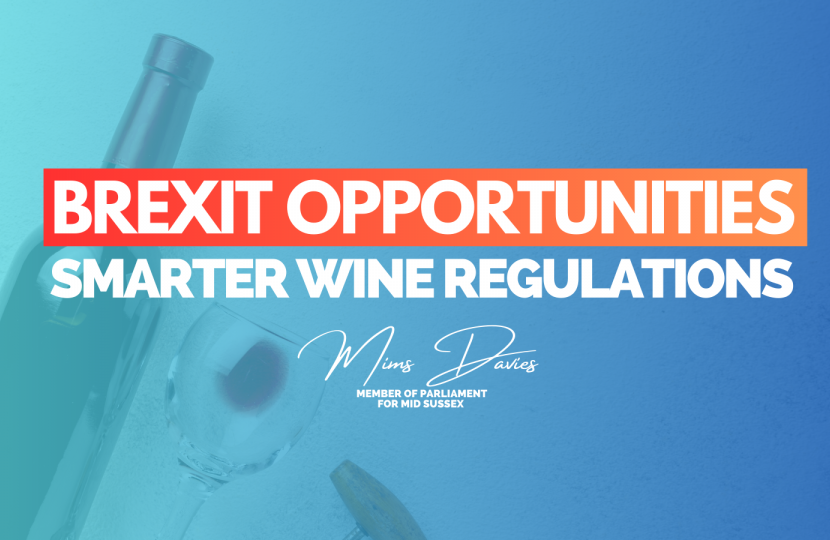
This week DEFRA launched a consultation to sweep away restrictions contained in retained EU law that are hindering growth in our wine sector.
These restrictions have stopped industry from using good practices to reduce production costs and orientate their businesses to meet evolving consumer demand. The reforms were identified during engagement by Defra and the Brexit Opportunities Unit with the wine trade, producers and businesses in the supply and retail chain.
DEFRA's plans include changes to importer labelling regulations that are expected to hold the price of wine down by as much as 50p a bottle, allowing the production of low and no alcohol wine, and encouraging inward investment in our bottling plants. By allowing the blending or carbonation of imported bulk wine here, DEFRA expects to be able to reduce CO2 emissions and boost the sector by over £180 million.
Together with other changes they are proposing, I am confident that these measures will support our thriving and innovative wine sector for decades to come.
Currently, the UK is a world-leading player in the international wine trade. It is home to a diverse and dynamic wine sector and is one of the largest importers of wine in the world by both value and volume. In 2022, off-trade sales of still, sparkling, and fortified wine via supermarkets, convenience stores, and specialist off-licences in the UK were worth around £7.6 billion, while on-trade sales through hospitality outlets were worth an estimated £3.5 billion. We in government are determined to build on this strong record.
Subject to the consultation, it is DEFRA's aim to introduce the first stages of the reform this year with the remainder being introduced by the end of 2024. This will ensure that wine producers, trade and consumers can all benefit from them at the earliest possible opportunity. More details of our proposed reforms can be found here.




